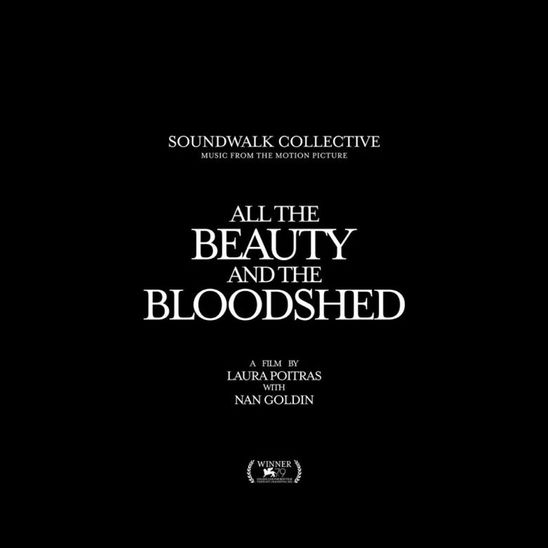
All The Beauty And The Bloodshed
SOUNDWALK COLLECTIVE
Szabolcs Bognar (Àbáse), the Berlin-based Hungarian musician, producer and polymath, will release his second solo full-length offering, Awakening, on July 5, 2024. Szabolcs is a protagonist of a jazz movement that has been rising in the German capital over the last few years. His new album, Awakening, is both a focused exploration of tones and rhythms, utilising the talents of musicians whom he has been working with in Berlin, and a journey through his own musical influences. The album, which has a spiritual feel, explores and riffs off loops and phrases of one or two elements in cyclical patterns, channelling the propulsive rhythms of drummers like Tony Allen and Clyde Stubblefield and the off-kilter swing of hip hop breaks. The album is a continuation of Szabolcs’ exploration of improvised jazz music and diasporic Afrobeats. Szabolcs, ‘Szabi’ for short, released his first Àbáse album in 2021, the shimmering multi-rhythmic Laroyê, to wide acclaim. Other releases include, most recently, the dreamlike LP Normafa, a selection of standards played by Bognár, Hock and Boros recorded live in Budapest – the second release on his own Oshu imprint; his 2019 EP Invocation (HHV, Cosmic Compositions); and the Body Mind Spirit EP (Jazz & Milk), a collaboration with Australian drummer and producer Ziggy Zeitgeist.
On Awakening, Szabolcs demonstrates a deep understanding of the way that music crosses time and geographic boundaries, conveying a message of unity and dialogue. This is audible in the delicate, melancholic flute, sax and piano phrases exchanged on Bloom, as well as on the triumphant Shining, with its swirling flute and saxophone lines, strings, and a recording of his daughter’s voice, saturated in delays. Throughout his career, Szabi has worked to bridge creative ideas and cultural viewpoints, participating in two productions of Felabration in Budapest, working as an arranger and piano teacher, and completing a two-week musical residency in Ghana. To compose his previous LP Laroyê, he spent five months travelling around Brazil, and that influence is discernible here too, for instance on the track Destruction Everywhere.
There’s a slight psychedelic touch to the album, with elements of traditional Hungarian folk, for instance on the tracks Vérmező and God’s Star Castle is Falling to Grief. Growing up, Szabi learned Hungarian folk music in school, alongside Hungarian classical music. The beautiful track Home is a sextet jazz composition that draws on this aesthetic, with a 3/4 time signature, and a lovely solo by Hungarian flautist and alto saxophonist Fanni Zahár. Sunisaway started as a jam session in between takes late at night, inspired by Sun Ra. When the Sun Ra Arkestra coincidentally came through Berlin, its members Cecil Brooks and Knoel Scott (who recently released his Celestial LP on Night Dreamer) came by Brewery Studios and contributed to the track. A number of people from the community joined in on vocals, including Dumama, Wayne Snow and Rhea Sode. Àbáse’s Awakening LP is strongly influenced by a range of 20th century jazz players, especially John Coltrane, but also Max Roach, Pharoah Sanders, Clifford Jordan and Pete La Roca.
All of the tracks were recorded with the same six or seven people over a four-day period, with very few overdubs, and most of the tracks were recorded on the first or second take. The album showcases Szabolcs’ composition skills and the talents of this set of musicians in Berlin, including Ziggy Zeitgeist on drums, saxophonist Ori Jacobson, Fanni Zahár, Andras Koroknay on bass, Moog and modular synths, Erno Hock on double bass, and Ghanaian singer and percussionist Eric Owusu. The musical synchronicity he discovered with them and with engineer Erik Breuer inspired Szabi to write and complete the album within an intentionally short time period, in order to capture that collaborative energy. “We all came to Berlin in search of something,” he says, describing how each of them fell in love with the sense of possibility in this city. The album concludes with the meditative, Detroit-inspired groove of Shango, a rendition of a traditional Yoruba chant by Baba Olatunji, with vocals by Eric Owusu and synthesiser flourishes, conveying spirituality, bravery and passion. Szabolcs describes the mystery of how life unfolds as an inspiration for this track and the album overall: “The way we experience life on earth, making sense of the universe around us, will completely shift upon our transition or ‘death,’ on a pathway to something higher. Our current understanding of the sun and the moon, for example, will seem childish, as we understand their real significance. What we experienced as a lifetime on earth will seem just a second in cosmic time.”